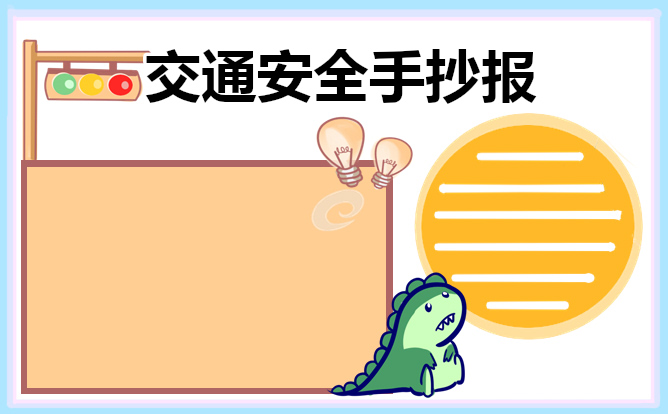arrange的用法总结
今天给大家带来了arrange的用法 ,我们一起来学习吧,下面小编就和大家分享,来欣赏一下吧。
从零开始学英语:arrange的用法
arrange表示“安排某人做某事”,不能用 arrange sb to do sth, 而应用 arrange for sb to do sth (此时的 arrange 为不及物动词)。
①用作及物动词。如:
a) 用名词或代词作宾语。如:
We will arrange everything. 你们会安排好一切的。
I've arranged a taxi for you. 我已为你们安排了一辆出租车。
有时用于被动语态。如:
It is all arranged. 这事全都安排好了。
b) 用不定式作宾语。如:
They arranged to start early. 他们计划一早出发。arrange的用法
I've arranged to see them tonight. 我已安排今晚同他们见面。
We still have to arrange how (when) to go there. 我们还得安排如何(何时)去那儿。
表示“安排某人做某事”,不能用 arrange sb to do sth, 而应用 arrange for sb to do sth (此时的 arrange 为不及物动词)。
c) 用 that 从句作宾语(从句多用虚拟语气)。如:
We have arranged that she (should) look after the children. 我们已安排她照看孩子。
They arranged that the meeting (should) be put off to Saturday. 他们安排把会议推迟到星期六。
d) 不接双宾语。如:
请给我们安排一次与工人的会见。
正:Please arrange an interview with the workers for us.
误:Please arrange us an interview with the workers.
②用作不及物动词(注意与介词的有用搭配)。如:
We must arrange about that. 我们须对此事作出安排。
Call up and arrange (for)a taxi,please. 请打电话安排一辆出租车。
Let's go and arrange with them about it. 我们去和他们把这事安排一下。
Let's try and arrange so that we can get there in time. 我们设法安排一下,以便能及时赶到。
用作不及物动词时,还通常用于 arrange for sb (sth) to do sth(此类句型中的介词 for 不能省略)。如:
He's arranged for me to attend the meeting. 他已安排我去参加会议。
We have arranged for the car to come at nine. 我们已安排好让汽车9点钟来。
比较以下同义句型。如:
我们安排把会议推迟一周后召开。
正:We arranged for the meeting to be put off for a week.
正:We arranged that the meeting (should) be put off for a week.
2. 表示“整理”、“排列”,是及物动词。如
They were arranged in kinds (years, size). 他们是按种类(年代,大小)排列的。
We must arrange the room before the guests arrive. 在客人到来之前我们必须把房间整理好。
arrange的用法
一、arrange的基本含义1. 作及物动词,意为"安排",后接名词、代词、不定式或从句作宾语。如:It's not necessary for a parent to arrange everything for his or her child. 父母没有必要为他或她的孩子安排好一切。She arranged all her business affairs before going on holiday. 她在度假前把业务都安排好了。The manager arranged to meet the customer who complained the next day. 经理准备第二天见见那位抱怨的顾客。It is arranged that they should leave the following spring. 根据安排,他们明年春天离开。2. 作不及物动词,意为"安排"。如:Let's try and arrange so that we can get there at ten o'clock. 让我们安排好,以便于我们十点钟能到那里。3. 作及物动词,意为"整理、布置、排列"。如:Please arrange the flowers in the vase. 请插好花瓶里的花。The manager is arranging a dinner to celebrate our anniversary. 经理正在筹备庆祝我们周年纪念的聚餐。4. 作及物动词,意为"改编(乐曲)"。如:The music for the violin can also be arranged for the piano. 小提琴曲也可以改编成钢琴曲。二、arrange的常用搭配1. arrange to do sth. 使某事发生,准备。如:I'll arrange to be in when you call. 你来电话时,我一定在屋里等着。2. arrange with sb. about sth.与某人商定某(事)物。如:I've arranged with the neighbours about feeding the dogs. 我已和邻居商量妥喂狗的事。
Arrange这简单高频词,你还是会用错?
有时候,越简单的英文越容易错;今天要看的arrange,就是一个例子。
安排一场会议、安排一辆计程车、安排一个interview,都可以用arrange。来看看这句话哪裡错了:
(X)I’ve arranged him to attend the meeting.(我已经安排他来参加会议。)
(X)Please arrange a taxi.(请帮我安排计程车。)
arrange 这个动词,虽然是安排,但安排的经常是事,而不是人或物,在用法上要注意。
1
1、用作及物动词表示「安排」、「准备」时,后面通常接事情,而不接具体的人或东西。如果要接具体的人或东西则需后接介词for,如以下两例中的for不宜省去:
我们将安排一位有经验的教师。
(X)We’ll arrange an experienced teacher.
(O)We’ll arrange for an experienced teacher.
我已安排好了一辆计程车。
(X)I’ve arranged a taxi.
(O)I’ve arranged for a taxi.
2
2、Arrange如果接一件事情当作受词,for可以省略,而且省略了更具现代感:
你希望安排一次个别面试吗?
(不好)Would you like to arrange (for) a personal interview?
(好)Would you like to arrange a personal interview?
3
3、arrange的「安排」不直接以作受词,所以要表示中文的「安排某人做某事」,英语习惯上不说 arrange sb to do sth,而说arrange for sb to do sth:
我已经安排约翰在大厅与你见面。
(X)I’ve arranged John to meet you at the lobby.
(O)I’ve arranged for John to meet you at the lobby.
4
4、arrange后面可以接that引导的子句:
They arranged that the meeting (should) be put off to Saturday.(他们安排把会议延到星期六。 )
I’ve arranged for him to attend the meeting.=I’ve arranged that he (should) attend the meeting.(我已安排他去参加会议。)
和arrange很像的动词还有suggest/wait/hope。简单的英文细细看,还是看得出它精深的道理。
形容词作状语表什么
形容词作状语表示伴随或结果,并不表达动作的方式。 如:
After a long journey,the three of them got back home,hungry and tired.
经过长时间旅行后,他们三个回到了家,又饿又累。
He lay in bed,wide awake.他躺在床上醒着。
形容词作定语的后置规律
形容词作定语一般位于所修饰的名词前,但下列三种情况形容词要后置:
①形容词短语作定语时;
②表语形容词作定语时;
③修饰复合不定代词时。





